
澳門90後|社會科學碩士|財經媒體|澳門研究| 生活瑣事
Explaining Macao’s Economic Changes with Philosophy: The Application of Hegel and Tetsuji’s Cultural Philosophy in Macao|Submission #06
Note: This article is a Chinese summary of the paper report from the 3A Philosophy Group of the Jinghai Humanities Roundtable Symposium at the University of Macau on May 4, From coastal to River Valley: On the Changing Cultural Manifestations of Macao in terms of Hegel's and Watsuji's studies of Fudo . The New Territorial Theory: Part of the research project of "The Territorial Theory of Tetsuji Tetsuji and Its Application to Hong Kong and Macau Studies".
Author: André
For a long time, China was regarded as a "mainland country". In Lectures on the Philosophy of History, Hegel criticized China for "taking the sea as its boundary" and failing to realize its cultural spirit in the ocean. However, Hegel believed that only the boundless ocean can enable culture to fully realize the essence of "freedom" ( Note 1); Because the Chinese spirit has never realized itself in the ocean, Hegel asserts that Chinese culture has no freedom.
But Hegel's assertiveness contradicts historical facts. First, according to historian Lincoln. According to Lincoln Paine, there is no so-called "continental country" in the world, because even landlocked countries such as Mongolia have been directly or indirectly affected by ocean shipping through river transportation during the development of human history (Note 2).
Secondly, China has been active in maritime navigation in history, such as the Maritime Silk Road in the Tang and Song Dynasties, Zheng He's voyages to the Western Ocean in the early Ming Dynasty, etc. Moreover, Hong Kong and Macau, two coastal cities colonized by Britain and Portugal in history, just changed the situation. The development of modern Chinese history has become an in-betweener for cultural and economic and trade exchanges between the East and the West. In addition, the decline of shipping experienced by Macau after the opening of Hong Kong’s port in 1842 further proves that a culture does not have to be self-realized forever in the ocean, but can be realized by replacement. place of self.
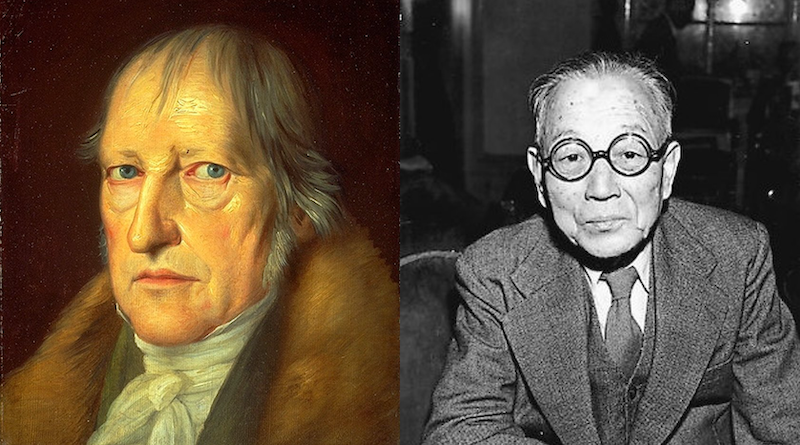
Compared with Hegel, who cannot explain cultural changes, the terroir theory of the Japanese philosopher and Tsuji Tetsuro (1889-1960) of the Kyoto School can provide a cultural philosophical explanation for the historical transformation of Macao: because Kazuji believes that culture is the relationship between the terroir and the human world. Born of the "magara" in between, the paper reported on the same day pointed out that, according to the revised theoretical framework of Watsuji and Hegel, Macao has experienced a transformation from realizing culture on the coast to realizing culture on the plains.
What is the handle? In "Ethics", Kazuji defines aidagara as "an interpersonal interaction of mutual concern from individuals as subjects, as in communication and organization. (Note 3)" However, Magara does not It is limited to refer to the interaction between individuals, but also includes the interaction between humans and nature. Since Kazuji believes that culture is the product of the interaction between human society and nature, any changes in geographical and historical conditions can result in radical changes in cultural values. But for Hegel, cultural values and even the place where they are realized are determined by God, so value changes are not possible.
However, compared with Hegel, Hotsuji's knowledge of geography is quite poor. When discussing "the relationship between terroir and the world", he focuses on climatic factors, and rarely discusses land and sea topographical factors; on the contrary, Hegel emphasizes topography and There is a direct relationship between cultural values.
Therefore, this research project not only addresses Hegel's inability to explain cultural changes and Kazuji's inability to fully grasp the interaction between culture and land and sea factors, but also applies cultural philosophy to Hong Kong and Macau studies for the first time, providing a set of philosophical methods for Hong Kong and Macau studies. .
Hegel's "Three Stages of Universal Relations"
Hegel's philosophy believes that human history is all the same absolute spirit (Geist, that is, the "God" who dominates the operation of all things in the universe; although Hegel claims that this is the God of Christianity, philosophers and theologians may not agree, such as Zeke The self-appearance of the fruit), and this process of appearance is inevitable and completely determined by the spirit, and the spirits of different countries or nations are just different stages of the development of the absolute spirit. In Lectures on the Philosophy of History, Hegel therefore divides the development of history into three stages, namely:
- Oriental spirit, only one person is free
- Greco-Roman spirit, some people are free
- German spirit, freedom for all
Hegel's division of historical stages is related to his definition of spirit. Hegel defined it as "self-consciousness", and "the 'substance' or 'essence' of 'spirit' is 'freedom'. (Note 4)" Whether a person can fully realize himself or not determines the degree of freedom. In the eastern world (including China, India, Persia, Arabia, Egypt, etc.), only the emperor is free, and everyone else is regarded as the emperor's slaves, so it belongs to the lowest stage of historical development.
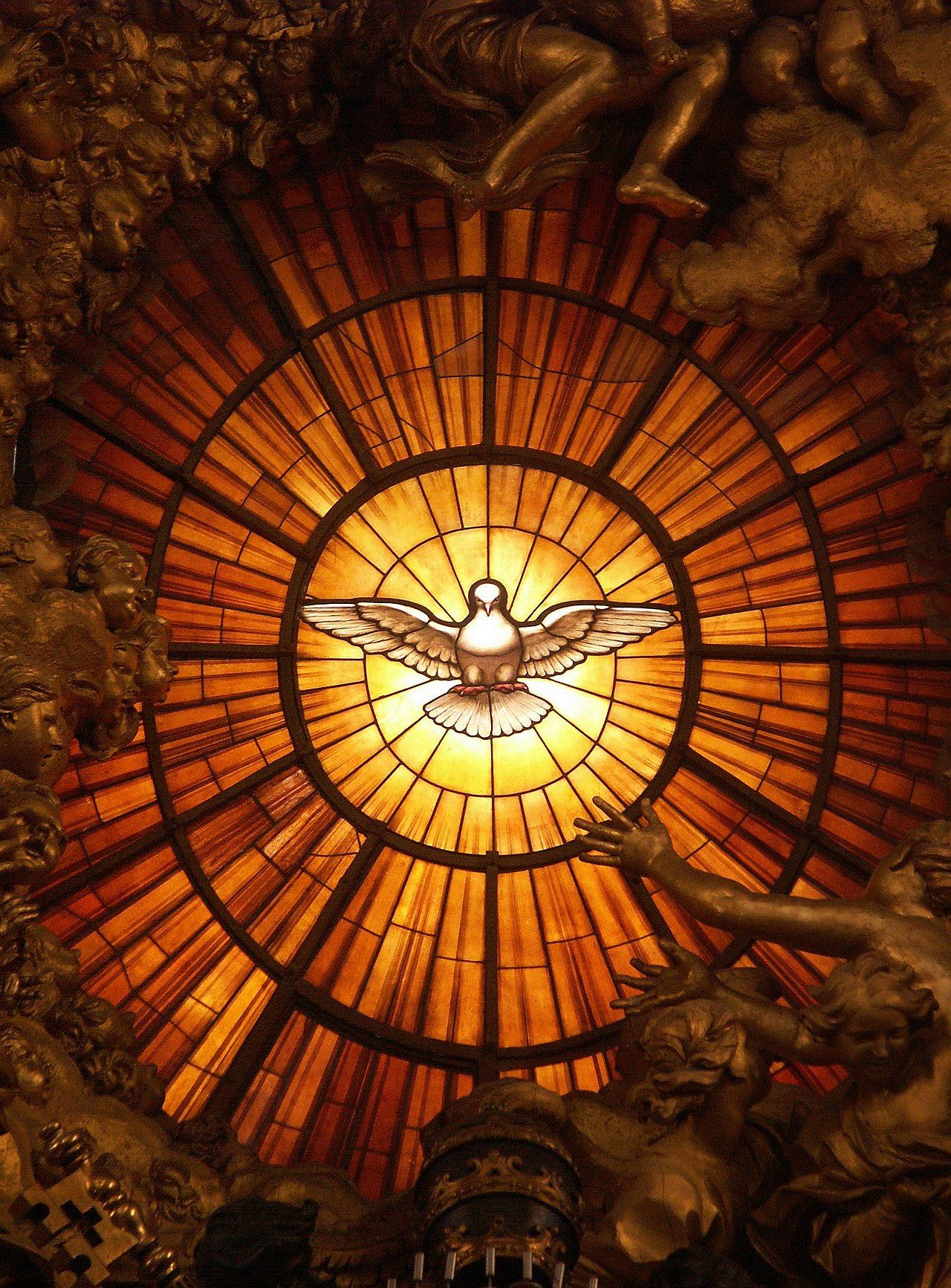
But to discuss the realization of culture, one cannot just talk about history and ignore what Hegel called "geographical foundations." Although Hegel opposes environmental determinism and believes that geographical environment cannot determine culture, he admits that geographical environment will restrict the realization of cultural spirit and make it realize different characteristics. He believes that culture can realize itself in three geographical areas, namely plateau, plain watershed and coastal area. Among them, the ocean is regarded as a place where the spirit fully expresses its freedom. Haigh points out:
The sea has given us the idea of indeterminacy, vastness, and infinity; when man feels his own infinity in the infinity of the sea, they are inspired to go beyond that which is finite. The sea invites man to conquer, to plunder, but at the same time he encourages man to pursue profit and to engage in commerce. Ordinary land, ordinary plains and watersheds bind human beings to the soil and involve him in infinite dependence, but the sea holds human beings beyond those limited circles of thought and action (Note 5).
Hegel's emphasis on topography makes his cultural philosophy unique. Cultural philosophers in East Asia, such as Lao Siguang, Mou Zongsan, Tang Junyi and others, often judge the "cultural spirit" of a culture only from historical and philosophical classics, ignoring the geographical basis. Western cultural philosophy and theologians, such as Tian Licker's "Cultural Theology" and Niebuhr's "Christ and Culture", also ignore the geographical conditions of culture.
It should be noted that where a cultural spirit is realized depends entirely on the invariable nature of the culture (Note 6), which is determined by the "absolute spirit" or God, and is an inevitable process. Hegel pointed out in § 345 of the Philosophy of Right that every stage of the development of world history is an "inevitable link" in the development of absolute spirituality (Note 7). Therefore, the cultural spirit cannot be realized sometimes on the coast and sometimes on the plain, but only in a certain place. Hegel concluded that Chinese culture lacks freedom in essence, only realizes itself in the plains, cannot realize itself in the sea of freedom, and cannot explain the existence of Macao, so we need to borrow the philosophy of Kazuji to analyze the situation in Macao.
With Tetsuro Tsuji's Magari, Territory, and Humanity
In 1927, Kazuji took the ocean-going ship Hakuyama Maru to study in Germany, passing through China (Shanghai and Hong Kong), Southeast Asia, India, Arabia, Egypt, Greece, Italy, France, and the United Kingdom to investigate the interaction of climate and culture in various places. In 1935, he wrote the book "Terroir: An Investigation of Human Studies", which advocates that culture is born from the relationship between the human world and the terroir.
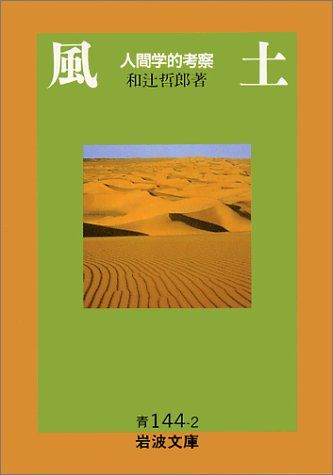
The advantage of Wa Tsuji's cultural philosophy is that his theory does not assume the existence of an unchanging cultural spirit. Hegel believed that the cultural spirit existed prior to the interaction between humans and nature, but Watsuji believed that the cultural spirit was the result of the interaction between the human world (society) and the terroir (nature). It's just that when Kazuji investigated the interaction between the human world and terroir, he only focused on climate, ignoring the topography that Hegel was concerned about; in addition, due to Kazuji's poor knowledge of climate and cultural anthropology, he also proposed in "Terroir". A lot of incomprehensible "investigation results".
For example, Kazuji divides the world's terroirs and cultures into three categories according to climate: monsoons, deserts, and pastures, but mistakenly thinks that tropical climates are also a type of "monsoons" (Note 8). For another example, since Kazuji believes that Europe has a pasture climate, with stable precipitation and temperature changes, Europeans are "more rational". This statement is very far-fetched.
Application of Hegel and Tsuji Theory Model to Macao and Its Theoretical Contribution
Taking into account the pros and cons of Hegel's and Wa Tsuji's cultural philosophy methodology, "The New Territory Theory: The Territorial Theory of Ho Tsuji Tetsuro and Its Application to Hong Kong and Macau Studies" is a project that combines the strengths of both parties - Hegel's emphasis on topography, and Hegel's emphasis on topography. Tsuji believes that culture is the product of the interaction between terroir and people - constructing a set of "Hegel and Tsuji theoretical models" to explain how the special geographical conditions of Hong Kong and Macau affect the formation of their cultural awareness. Rather, this conference paper reports an attempt to apply this theoretical framework to explain how the site of cultural manifestation in Macau was transformed from an ocean to a river valley.
After the opening of Hong Kong in 1842, Hong Kong quickly replaced Macau as an international entrepot and a center for the intersection of Chinese and Western cultures. From the perspective of the "Hegel and Tsuji Theory Model", it means that before 1842, Macao's culture was realized in the ocean; after 1842, when it was gradually replaced by Hong Kong, its culture was realized in the river valley.
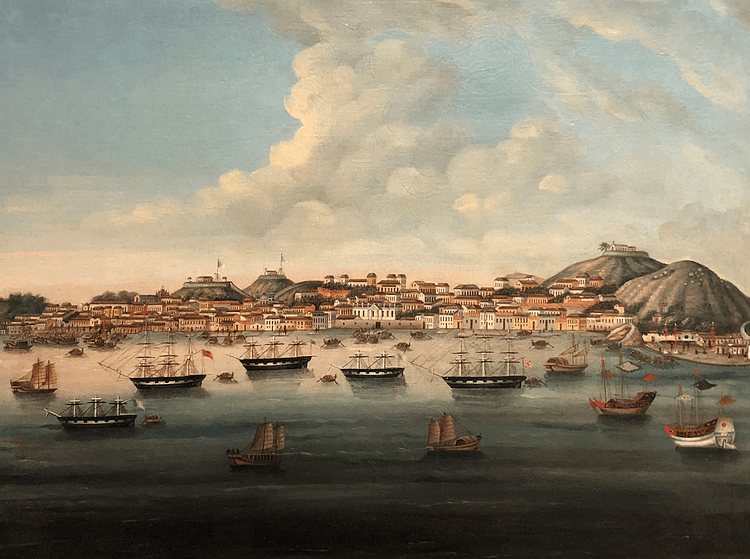
This change has a great relationship with the geographical conditions of Hong Kong and Macao, especially the depth of the port. As we all know, the water in Macau is shallow and the waves are calm, so it is known as the mirror; on the contrary, the Victoria Harbour is deep and wide. In the age of sailing, Macau's shallow waters were an advantage. For example, the "Xiangshan County Chronicle" says: "The place where boats can be moored in Macau is called Shali. When the tide goes out in the west gate, there are only three extensions, and between the near east boundary and the triangle island is four and a half to five extensions deep. The soil is very loose, and it is easy to be buried when anchored. 9)"
However, in the age of ships, the port of Macau was difficult for ships to dock, and was naturally replaced by Hong Kong, which has a deep-water port. In the "Gongbei Customs Trade Report from 1887 to 1891", Alfred E Hippisley, the tax department of Gongbei Customs, pointed out that "the Pearl River and the Xijiang River brought a lot of silt, which caused the rapid silting of the port of Macau at the exit of the two rivers, which may also cause the Macau One of the most important reasons why the status of the commercial center has plummeted. (Note 10)”
Historian Jonathan Porter divides the history of Macau into six periods, and believes that the opening of Hong Kong as a port directly led to the transition of Macau history from the fourth period (1750-1840) as an "autonomous city" to the fifth period (1840-1950): Macau become "a backwater no longer significant politically or commercially" (Note 11).
But this does not mean that Macau has completely withdrawn from the stage of history since then, but has instead turned to realize its culture on the river valley, and this river valley refers to the Pearl River (especially the Xijiang River Basin). According to Cai Sixing's research, from the end of the 19th century to the beginning of the 20th century, due to the inconvenience of land transportation in eastern Guangdong, Guangxi and Yunnan, if the British wanted to trade with the middle and upper reaches of the Pearl River, they had to go through the Xijiang River. The shallow waters made it difficult for ships from Hong Kong to enter and exit, so Macau, where sailboats and small ships could enter and exit, became a transit point for the Wuzhou-Hong Kong trade route (Note 12). The status of Macau was downgraded from a "transportation hub between China and the West" to a "transit point between the mainland and Hong Kong".
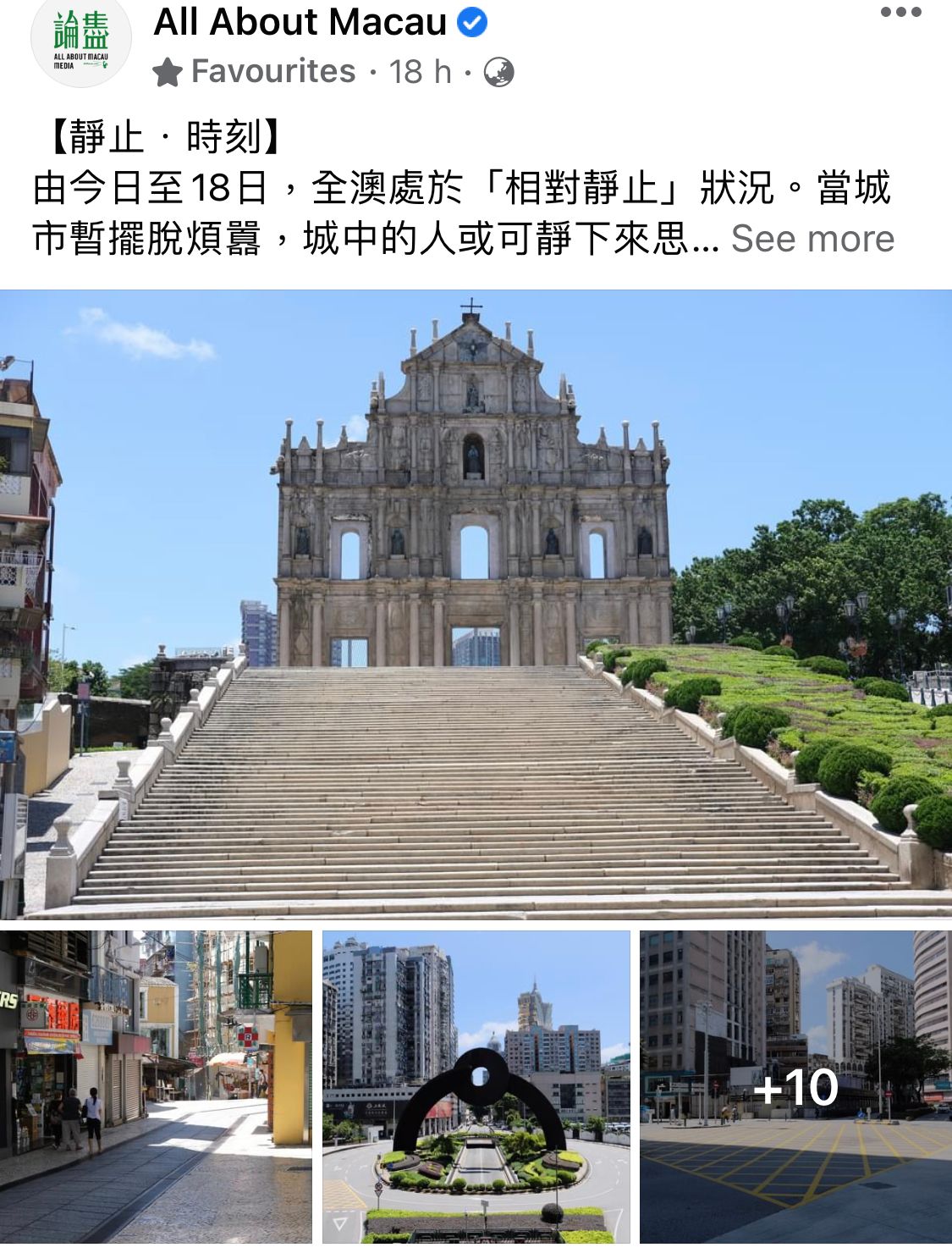
From the perspective of the "Hegel and Tsuji Theoretical Model", the change of Macao's place is due to the change between the human world and the terroir in the 19th century: the change of Macao's terroir is "the rapid silting of the port", and the change of the human world includes : Changes in Western navigation technology, ships replaced sailboats, the Manchu Qing was forced to cede Hong Kong Island after the Opium War, etc.
Since Hegel believes that the ocean is the place where culture realizes its "free" character, we can infer that Macau had a "free" character before 1842, and this character gradually disappeared after 1842 . Since this research is still in progress, it remains to be seen whether this theoretical assumption holds true, but at this stage, we can first clarify the content of Hegel’s statement that the sea embodies “freedom”, and then use this as a standard to examine the history of Macau. Hegel said:
Sailors all want to make a profit, but the method they use is to seek fish from wood, because they risk their lives and property to seek profit. Therefore, the means they use are the exact opposite of the goals they pursue. This relationship makes their profit, their profession, something brave and noble beyond profit and profession. There must be courage in trading, and wisdom must be combined with bravery. Because the brave men have to deal with the most treacherous, the most unreliable, the most treacherous element when they go to sea, so they must also be intriguing - vigilant. (Note 13)
Thus, by Hegel's "freedom" in the sea, he means being free from the shackles of the land, making one take risks: taking nautical risks to make a profit, while also becoming "alert".
Does this description apply to Macau in the sixteenth to early nineteenth centuries? And has Macau completely lost these characteristics after the mid-19th century, or did it selectively retain some residual "marineness"? This is a question that needs to be paid attention to in the future research on cultural philosophy.
#Number of articles: 1️⃣1️⃣9️⃣
✅ Patreon |👍Facebook Page |📣 Call for Papers |👂 Podcast
References :
Note 1: Hegel, translated by Wang Zaoshi, Philosophy of History (Shanghai: Shanghai Bookstore Publishing House, 2001), p. 93.
Note 2: Paine, Lincoln, The Sea and Civilization , (New York: Vintage Books, 2013), 5-6.
Note 3: The original text is: "The main body's に mutual に か ら は meeting ふと こ ろ の cross り, traffic と い ふ Ru き, people と 人 の の の の behavior link である." Watsuji Tetsurō, Watsuji, Tetsurō, Wa tsuji Tetsurō's Rinrigaku : Ethics in Japan, Yamamoto, Seisaku & Carter, Robert E trans. (Albany: State University of New York Press, 1996), 18.
Note 4: Hegel, Philosophy of History, p. 17.
Note 5: Ibid., p. 93.
Note 6: Andrew Ka Pok Tam, 'On the Kierkegaardian Philosophy of Culture and Its Implications in the Chinese and Japanese Context (post-1842)', PhD Dissertation, University of Glasgow, 2020, 156.
Note 7: Hegel, translated by Deng Anqing, Philosophy of Law (Beijing: People's Publishing House, 2017), p. 475.
Note 8: See Tan Jiabo, "The Diversity of China's Territory and Humanity: On the View of Chinese Culture in Tetsuji and Tsuji's "terroir", Taiwan Journal of East Asian Civilization Studies, Vol. 19, No. 1 (2022), p. 1 -40.
Note 9: Chen Li, "Hai Phong", "Xiangshan County Chronicle", vol.
Note 10: He Bili, "Gongbei Customs Report from 1887 to 1891" "Compilation of Modern Gongbei Customs Reports". Retrieved on April 22, 2022 from https://www.macaudata.mo/macaubook/book180/index.html
Note 11: Porter, Jonathan, 'The Transformation of Macao', Pacific Affairs 66, no. 1 (1993): 9-10.
Note 12: hoi, Sze-Hang, The Remarkable Hybrid Maritime World of Hong Kong and the West River Region in the Late Qing Period , (Leiden and Boston: Brill, 2017), 76.
Note 13: Hegel, Philosophy of History, pp. 160-161.
Like my work?
Don't forget to support or like, so I know you are with me..

在帝國邊陲講故事

四個社會科學和歷史背景的作者,嘗試訴說一座名叫「澳門」的看不見的城市。它的故事不止關乎自身,也關乎背後的帝國和邊陲。 👇我們的故事|Podcast|免費電子報|Patreon https://linktr.ee/macaology_empire
Comment…